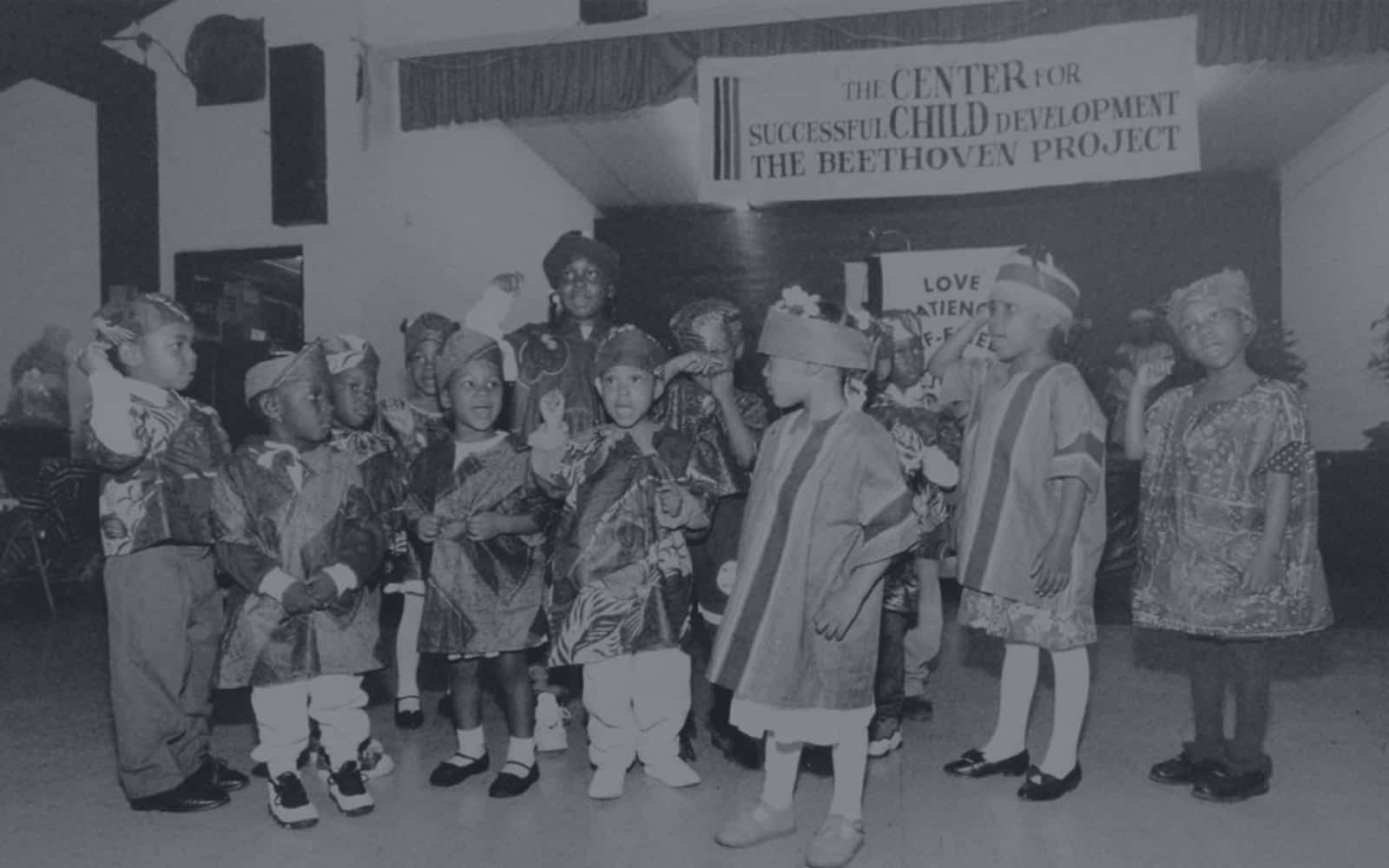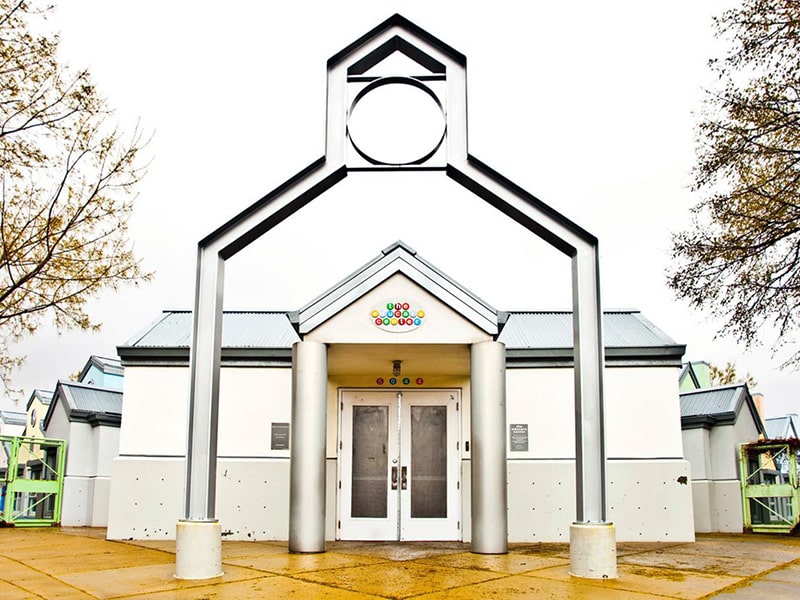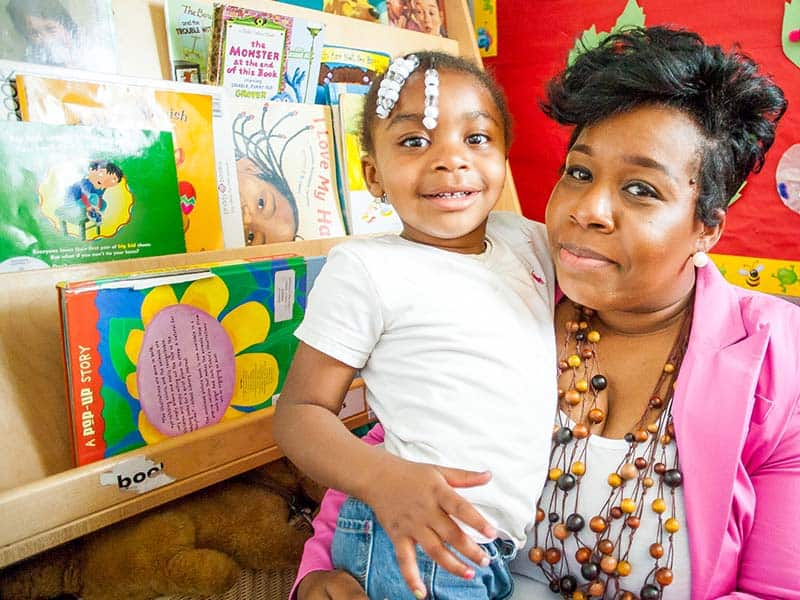In these tumultuous times, the need for greater diversity, equity and inclusion (DEI) is in the news almost every day. One of the best ways to raise tolerant, accepting and empathetic children ready to thrive in life is to start early, incorporating inclusion and anti-bias into early childhood education curriculum for infants, toddlers and their families.
Stay Connected
Sign up to receive news, helpful tools and learn about how you can help our youngest learners.
Danielle Jordan, a school director of Educare Chicago, recently shared the early childhood school’s DEI best practices, starting with the fundamentals.
Teachers at Educare Chicago incorporate songs, storytelling and books into the curriculum. Some of her favorites include:
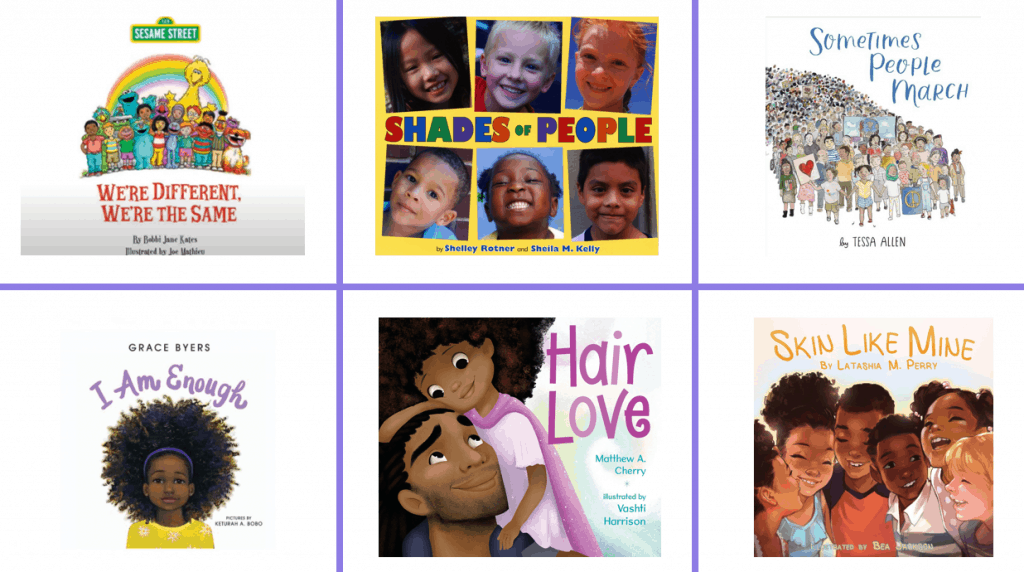
This approach to developing a child’s sense of confidence in their personal and social identities (e.g., gender, ethnic and religious) aligns with the National Association for the Education of Young Children’s (NAEYC) anti-bias education. As a result, children feel grounded in who they are without a need to be superior to anyone else. The approach also emphasizes a teacher’s capacity to help a child recognize how they are simultaneously different and similar to others, which helps children foster an ability to comfortably and empathetically engage with people from all backgrounds.
We encourage students to share what is distinct about their families, how they celebrate special occasions and what is important to them.
Danielle Jordan, School Director, Educare Chicago
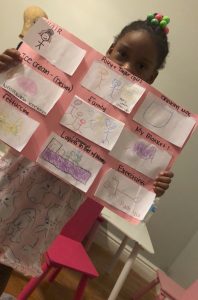 In a recent activity, children recently made posters showcasing their cultural heritage, as well as their similarities and differences. “The students were able to share and be proud of what makes them unique… your hair may be in ponytails, while my hair is in locks. The simple rule is we would like to treat people fairly and acknowledge that we are different but we’re also the same and need to show each other respect,” Jordan continues.
In a recent activity, children recently made posters showcasing their cultural heritage, as well as their similarities and differences. “The students were able to share and be proud of what makes them unique… your hair may be in ponytails, while my hair is in locks. The simple rule is we would like to treat people fairly and acknowledge that we are different but we’re also the same and need to show each other respect,” Jordan continues.
This focus on respect and appreciation for inclusion is particularly important during this time of racial unrest. “The way that we address the societal environment is by talking about community, family, culture and heritage,” says Jordan.
To help talk about these topics, staff at Educare Chicago have incorporated Sesame Street’s “We’re Different, We’re the Same” segment into their curriculum, as well as the book “Sometimes People March” by Tessa Allen.
We are doing exactly what our name says… We are starting early and building foundations that I hope will give the students what they need to go on.
Danielle Jordan, School Director, Educare Chicago
Educare Chicago teachers also help students learn how to process big emotions such as sadness and anger, while emphasizing that people express feelings in a variety of ways to encourage an appreciation for personality differences. The school’s Wellness Specialists also connect with parents to let them know where their children are from a socioemotional perspective and offer guidance for development.
Intensive family engagement is a core tenet of the school’s approach, meaning the school’s inclusive curriculum also extends to children’s first teachers: their parents and caregivers. Staff provide parents with book recommendations, including those outlined above to help encourage at-home discussions about DEI. There are also parent support groups and a Parent Committee to help parents to build strong relationships with staff and one another.
Jordan has already seen the impact of their work. Recently, students celebrated a very shy classmate for stepping outside his comfort zone to give a presentation to the entire school about his pet snake.
Learn more about how to address race and identity with children by reading our National Racial Day of Healing blog post.
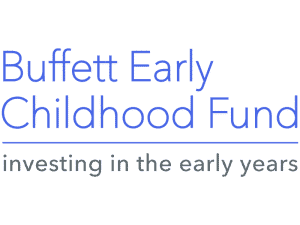 The Buffett Early Childhood Fund (BECF) invests in early childhood practice, policy and science to improve systems and create structural change so all young children and families thrive. BECF has partnered with Start Early for 20 years. BECF has invested a total of more than $90 million in Start Early, collaborating with our organization to launch and expand both the Educare Learning Network and the First Five Years Fund (FFYF) over time.
The Buffett Early Childhood Fund (BECF) invests in early childhood practice, policy and science to improve systems and create structural change so all young children and families thrive. BECF has partnered with Start Early for 20 years. BECF has invested a total of more than $90 million in Start Early, collaborating with our organization to launch and expand both the Educare Learning Network and the First Five Years Fund (FFYF) over time.
All of those opportunities that we have in those first five years to enrich a child's educational and intellectual development, to enrich their social and emotional development – that can have a really big impact on how children do in school, work and life.
Susan A. Buffett, Founder and Chair, Buffett Early Childhood Fund
History and Impact of the Educare Learning Network
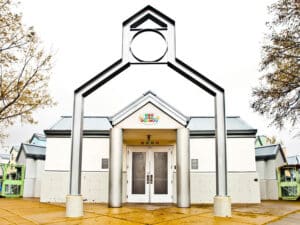 In 2000, Start Early, the Irving Harris Foundation and other partners created the first stand-alone Educare school, Educare Chicago, on the city’s South Side.
In 2000, Start Early, the Irving Harris Foundation and other partners created the first stand-alone Educare school, Educare Chicago, on the city’s South Side.
Shortly after opening its doors, Educare Chicago attracted the attention of Susie Buffett, founder of BECF and a philanthropist, at that time, new to early childhood. Susie Buffett was seeking to improve educational outcomes and bring an effective early education initiative to Omaha, Nebraska. Following consultations with Start Early and a site visit to our Educare school, she decided to invest in establishing an Educare school in Omaha, which opened in 2003.
Through BECF and Start Early’s leadership and partnerships with other Head Start providers, school superintendents and philanthropists around the country, the Educare Network has since grown to 25 birth-to-five schools in 15 states, Washington DC and the Winnebago Tribe of Nebraska. In Nebraska alone, BECF has supported the development of four Educare schools and three infant-toddler centers while fueling state policy and systems change to improve early care and education across the state. They have also inspired and engaged a cadre of philanthropic leaders to invest in early education across the country. As the Educare Network’s founding and longest-standing philanthropic partner, BECF works with Start Early and Educare schools to leverage the Network’s national footprint, invest in and scale innovative approaches and build capacity for policy and systems impact.
BECF’s Role in Accelerating Innovations in the Educare Network
Educare schools are learning hubs that innovate and share best practices to transform the lives of young children and positively impact the broader early childhood field. Through its Acceleration Grant initiative, BECF sparked and invested in innovation across the Educare Network, expanding the impact and reach of effective program and policy strategies developed by Network members to additional Educare schools and other early childhood providers nationwide.
Outcomes of BECF’s Acceleration Grant initiative include the expansion of the Educare Parent Ambassadors program, which develops and empowers parents and family members to use their voices and lived experiences in the advocacy arena. Building on the success of Educare Seattle and Educare Central Maine’s programs, Parent Ambassadors now includes six Educare schools and additional non-Educare programs in states across the country, with plans to further expand. The Acceleration Grant program also supported the scaling of Educare Miami’s Early Science Initiative to other Educare schools, a workforce mindfulness and wellness program from Educare Denver/Clayton Early Learning and an effective educator coaching initiative led by Educare Arizona/Southwest Human Development, among others.
Driving Federal Policy Change Through the First Five Years Fund
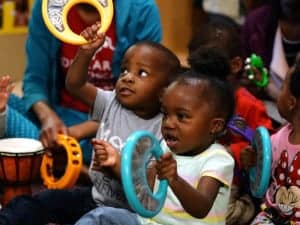 In 2007, BECF joined Start Early in launching the First Five Years Fund, a bipartisan advocacy organization that galvanizes support for greater investment in and access to high-quality learning and care.
In 2007, BECF joined Start Early in launching the First Five Years Fund, a bipartisan advocacy organization that galvanizes support for greater investment in and access to high-quality learning and care.
For fifteen-plus years, FFYF, with support from BECF and other visionary philanthropic partners, has played a crucial role in strengthening and expanding federal early learning programs and building unprecedented federal bipartisan support. This ever-growing momentum, demonstrated by a roughly 60% increase in funding and near-unanimous reauthorization of federal early childhood programs since 2008, represents significant progress and years of dedicated work.
FFYF’s efforts have been integral to maximizing the impact of federal investments supporting the expansion of early childhood opportunities. Additionally, as COVID-19 illuminated long-standing inequities in our country’s systems and policies, FFYF has amplified the role of early learning and care in advancing racial equity, plus the changes needed to create opportunities for all children to thrive. This emphasis on addressing inequities through the promise of quality early childhood education is at the core of BECF and Start Early’s missions, and we are grateful to have a like-minded partner in BECF for this critical work.
One of BECF’s greatest contributions has been inspiring the support of new philanthropic partners to join the movement for quality early learning and care, focusing on closing the opportunity gap.
Start Early is grateful for BECF’s long-term leadership, investment and partnership that continues to drive progress in early childhood education to benefit young children, families and communities nationwide.
The Buffett Early Childhood Fund (BECF) was established in 2005 by Susan A. Buffett. Based in Omaha, Nebraska, the Fund invests in practice, policy and research to close the opportunity gap for the youngest and most vulnerable children and their families in Nebraska and across the country.
The Buffett Early Childhood Fund’s practice investments include the Educare Learning Network; policy investments include the First Five Years Fund and the Alliance for Early Success; and research investments include the Frank Porter Graham Child Development Institute as the national evaluation partner of the Educare Network, the research of Nobel Laureate Dr. James Heckman, and the Harvard Center on the Developing Child.
In Nebraska, BECF supports a wide range of organizations and agencies that are working to close the opportunity gap, address early childhood workforce challenges and improve program quality and increase public funding streams across the state. BECF Nebraska partners include First Five Nebraska, the Buffett Early Childhood Institute at the University of Nebraska and the Nebraska Early Childhood Collaborative, among others.
More Like This
Last month, we hosted our 21st Annual Luncheon at the Hilton Chicago, where we welcomed hundreds of supporters to discuss advancing maternal health equity. Through powerful conversations and presentations with experts in the field, we discussed the maternal health crisis and the inequities in the system impacting Black women, alongside the innovative solutions that can save and transform lives.
If you were unable to join us, you can watch the highlights of an incredibly impactful afternoon below.
Quality maternal health can change a child’s future, and when we support the wellbeing of mothers and birthing parents, we set our children up to make an impact for future generations. Ensuring equitable access to quality health care – before, during and after birth – can help prevent maternal and infant mortality and strengthen the developmental systems that enable children to reach their full potential.
As Luncheon Co-Chair Sam Yagan shared, “…we have no choice but to address the issue of inequality at birth. Not just for the sake of the kids and the moms whose lives we improve, but for all of us, and for our own lives to improve.”
I am so thankful for the opportunity to bring parents, educators and early learning professionals together with business and community leaders to discuss the opportunity in front of us to reshape maternal health. And I want to share a special thank you to our Luncheon Co-Chairs, Suk Shah and Sam Yagan, who did an incredible job setting the stage for maternal health experts, mothers, and doulas, who provided the critical perspectives needed to understand the full picture when it comes to maternal health.
We are grateful for the incredible support and generosity of our donors and event sponsors who helped us raise $1.15 million. Every dollar raised helps our young families and sets the stage for them to thrive. You can still show your support by making a donation today. When we come together and invest in early childhood education, we can transform the lives of our future generation.
Luncheon Co-Chair Suk Shah said it best: “Children with quality early learning experiences, who are healthy and prepared, do better when they enter kindergarten. Parents do better, and they’re more prepared to contribute to the strength of their family and their community.”
Thank you for being part of our 2023 Annual Luncheon, and we hope to see you again soon.
2023 Annual Luncheon Sponsors
A special thank you to our generous individual and corporate sponsors who have joined us in a shared mission to close the opportunity gap and ensure every child has a chance to reach their full potential.
PRESENTING
$100,000
Yagan Family Foundation
CHAMPION
$50,000
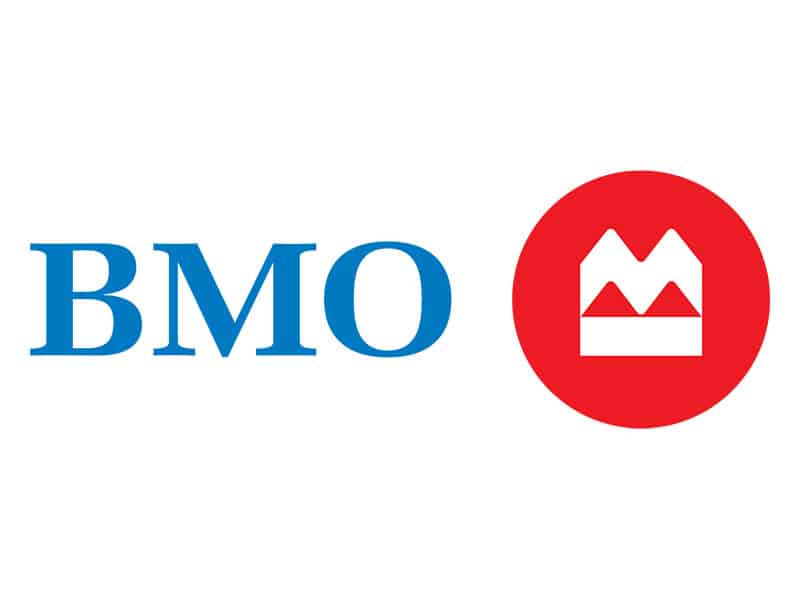 |
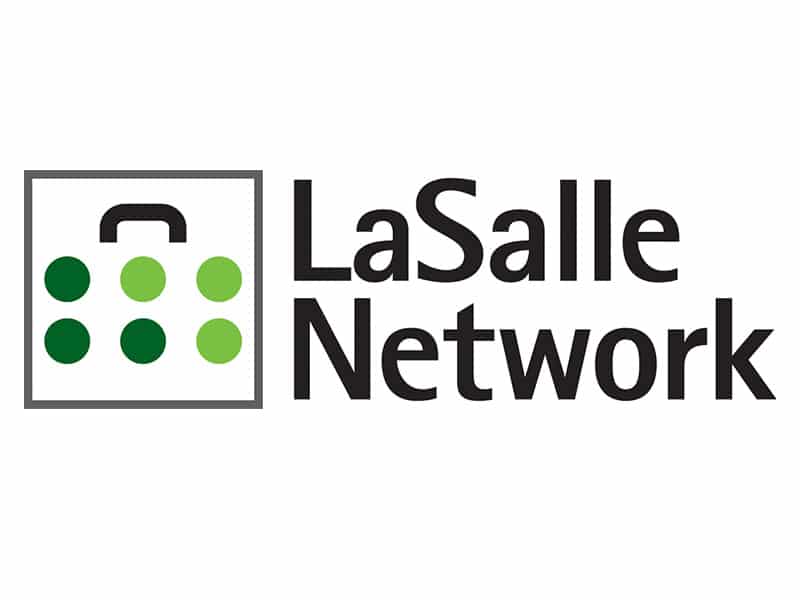 |
Nancy & Steve Crown | The Crown Family
The Hasten Foundation
Diana & Bruce Rauner
Zell Family Foundation
PREMIER
$25,000
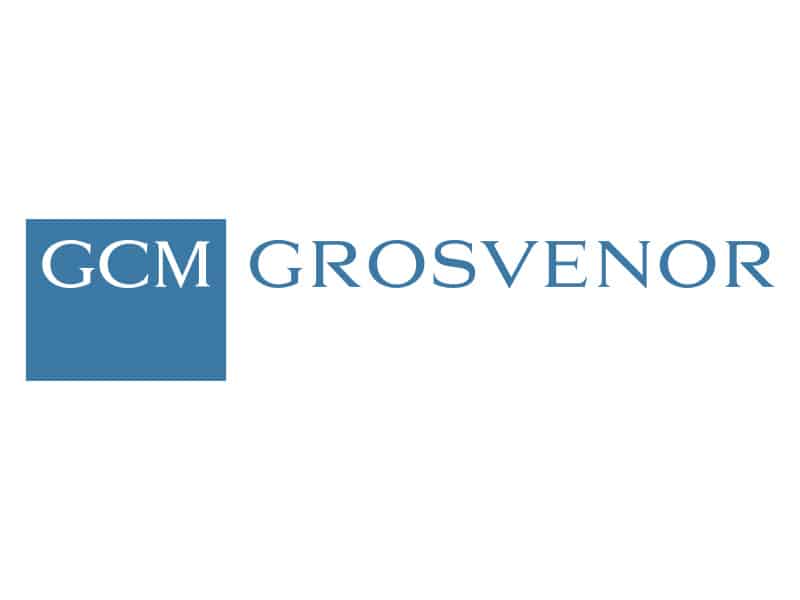 |
 |
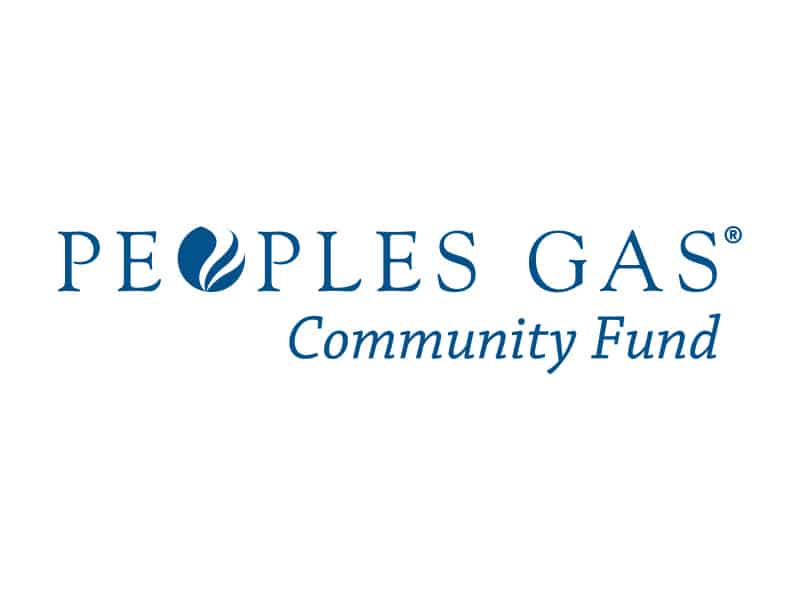 |
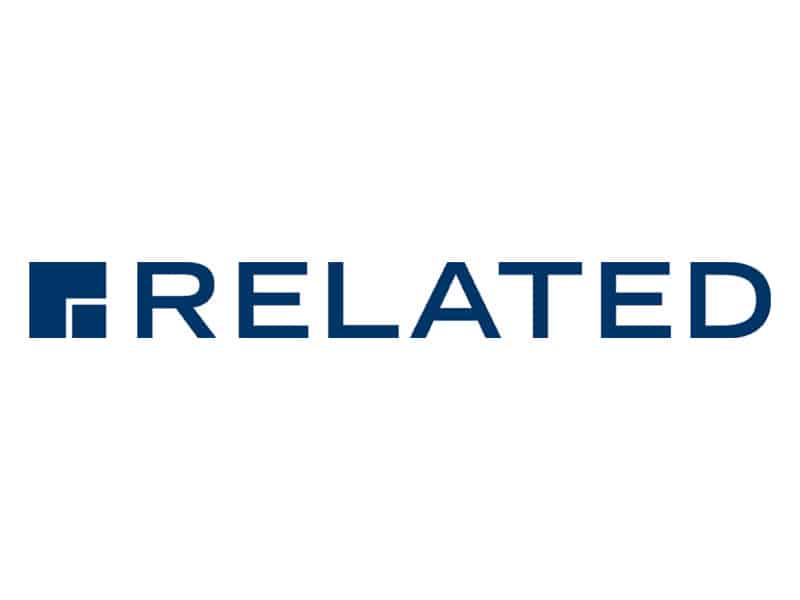 |
Marilyn & Larry Fields
Cari & Michael J. Sacks
Diana & Michael Sands
PARTNER
$10,000
Allstate
Amsive
Susan & Stephen Baird
Meredith Bluhm-Wolf & Bill Wolf
The Boeing Company
Noelle C. Brock, Brock Family Foundation
Jacolyn & John Bucksbaum
The Buffett Early Childhood Fund
Dave & Jane Casper
CME Group Foundation
The Duchossois Family Foundation
Cabray Haines & David Kiley
Harris Family Foundation
ITW
Ron & Fifi Levin, John & Elizabeth Burke, John & Danielle Didrickson | Goldman Sachs
Make It Better Foundation
The Malkin Family
Charles & Brunetta Matthews
PNC
Robert R. McCormick Foundation
Catherine Siegel
Michael & Linda Simon
Steans Family Foundation
Sterling Bay
StoicLane
Sunshine Charitable Foundation
Wilson Garling Foundation
COMMUNITY
$5,000
Ellen Alberding & Kelly Welsh
Ann & Robert H. Lurie Children’s Hospital of Chicago
Anonymous
Baird
Boston Consulting Group | Vicki Escarra
Jimmy & Eleni Bousis
Sarah Bradley & Paul Metzger
The Brodsky Family Foundation
Mark & Shari Coe | Intrinsic Edge
Erikson Institute
The Joseph & Bessie Feinberg Foundation
Fiducient Advisors | Terri & Bob DiMeo
Keith & Rodney Goldstein
Rachel & Devin Gross
Maxwell Gunnill
JP Morgan Chase
David & Gerri Kahnweiler
The Dolores Kohl Education Foundation
Klaff Family Foundation
Learning Resources
Elizabeth & Eric Lefkovsky
Barbara & Dan O’Keefe
Sharon Oberlander
Cathy and Bill Osborn
Plante Moran
Port Capital LLC
Protiviti
Jeanne Rogers & Perry Sainati
Rothkopf Family Charitable Foundation
The Shah Family
Cheryl & Craig Simon
Ken & Kathy Tallering
Robin Loewenberg Tebbe & Mark Tebbe
Laura Thonn
Anne & John Tuohy
Ulta Beauty
Mike & Robin Zafirovski
CHICAGO – APRIL 25, 2023 – On Tuesday, April 25, Start Early hosted its Annual Luncheon and celebrated 40 years of working to close the opportunity gap through quality early childhood learning and care programs and services. The gathering of business, civic and philanthropic leaders called attention to the critical role of maternal health and investing in services that support the earliest years of a child’s life – before, during and after birth. It was also announced that the organization received a $10 million donation from MacKenzie Scott through her foundation Yield Giving, which provides Start Early a transformative opportunity to broaden its reach and serve more families with critical programs in communities nationwide.
“These funds will allow us to make deliberate investments to broaden Start Early’s impact and help ensure sustainability decades to come, further advancing our commitment to children, families and future generations,” said Start Early President Diana Rauner. “This unsolicited gift also serves as tremendous validation of the hard work and investments of our staff, our board and our philanthropic partners. We hope our guests’ knowledge from this event will trickle out into the community and supplement the work that Start Early is already doing to create a more equitable and respectful level of care for all women, birthing parents and their babies.”
Despite the continued advancements in medical care and technology, the country’s maternal and infant mortality rates are far higher than those in similarly large and industrialized countries. Women of color, especially Black women, experience disproportionate access to maternal health care, putting them at increased risk for poor maternal and infant health outcomes compared to their white peers. As lasting effects of the pandemic set in and new research demonstrates worsening realities for birthing parents, Start Early felt it critical to devote its annual event to address and offer solutions to the maternal health crisis. The program educated attendees about the systemic inequities impacting women of color and elevated innovative solutions for saving lives and improving those first experiences of new parents and their babies.
The program, which took place at Hilton Chicago on 720 S. Michigan Ave., featured an inspiring lineup of stories from educators, parents, corporate leaders and champions for early learning, including strategic advisor for children and youth in King County, Washington, Sheila Capestany. Capestany discussed the maternal health crisis and its root causes, highlighted its devastating data and proposed policy changes necessary for reproductive and health care equity.
Celebrating 40 years of impact, Start Early is a champion for quality early learning and care and has made tremendous strides toward closing the opportunity gap for our youngest learners. From its roots directly serving families and children on Chicago’s South Side and in rural Illinois to its work today impacting early childhood programs and policies nationwide, Start Early’s focus is grounded in the fact that starting early to nurture attachments between children and adults is essential to a child’s present and future well-being.
Contact Press@StartEarly.org for more information and media opportunities.
For more than a decade, Lula M. Ford has served on Start Early’s Board of Directors, contributing to the organization’s growth and impact on families with young children across the country. While Ford joined the Start Early leadership team in 2009, her impact on and experience in the field of early education spans decades, particularly playing a monumental role in expanding opportunities for children and families throughout Chicagoland.
Celebrating 40 Years of Changemaking
Start Early is 40! Early childhood education and care has changed dramatically in America over the past four decades, and Start Early has always been at the forefront of that change.
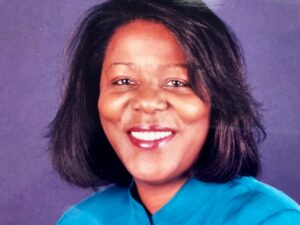 Ford was born in Pine Bluff, Arkansas, before relocating to Chicago in the late 1960s. From there, after completing two master’s degrees from Northeastern University and the University of Illinois, she began her career in education. She started as a teacher at Horner Elementary School, and eventually became the Principal of Beethoven Elementary School in the early 1990s.
Ford was born in Pine Bluff, Arkansas, before relocating to Chicago in the late 1960s. From there, after completing two master’s degrees from Northeastern University and the University of Illinois, she began her career in education. She started as a teacher at Horner Elementary School, and eventually became the Principal of Beethoven Elementary School in the early 1990s.
It was around that time that Ford started to take notice of the work being done in early education by Start Early (known as The Ounce of Prevention Fund at that time).
“I met with [Start Early founder] Irving Harris at that time, so when they decided to start Educare Chicago, I knew I wanted to be a part of it. I’ve really been connected with this organization for over 20 years,” Ford shared.
The Founding of Educare
Ford said that it’s been amazing to be a part of an organization that invests in children and their futures.
“We at Start Early believe in quality services,” Ford said. “That has always been my focus, providing quality services for children and families, and I am so proud of Start Early. It’s been amazing to see how we’ve spread nationally, and that’s been very rewarding for me, to see that we are interested in the education of children who are under-served.”
It’s been amazing to see how we’ve spread nationally, and that’s been very rewarding for me, to see that we are interested in the education of children who are under-served.
Lula M. Ford, Start Early Board Member
As for the next 40 years, Ford knows there’s more work to be done to ensure equitable opportunities for our youngest learners.
“Let’s continue to be a diverse staff, that is so important,” Ford said when asked about her vision for Start Early in the next four decades. “We’re on the right track, and we have an outstanding leader in Diana Rauner, and I can’t wait to see what we do.”
Help Start Early Celebrate 40 Years of Impact
Birthdays are a time for reflection, hope and looking to the future—join us in giving a gift that gives back this year to celebrate our birthday and your own, or a loved one’s.
More Like This
Brenda Smith has taught at Educare Chicago, a program of Start Early, for 13 years. In that time, she’s seen first-hand how providing for the needs of families can uplift not only her students, but the communities in which they live.
Every Child Deserves a Quality Education
Support Start Early and help us continue to build and offer quality programs, like Educare, to children and families living in under-resourced communities.
“We had one child whose mom was actually homeless… We treated them with so much care and love that when she came in, she would just stay the whole day,” Brenda says.
The student’s mom spent most of the day in the Educare Chicago Family Center, a space that gives parents access to a computer lab, family resource library and conference rooms. At the Educare Chicago Family Center, program staff made a point to connect with the mother and began building a meaningful, trusting relationship.
“She always came in when she brought him,” says Brenda. “She made sure he came to school… when she wasn’t coming, she would call us. We felt like she had really made us a part of her family.”
I’ve been in this field for a long time, and I have never been at a center that cared as much and had the same amount of compassion for its parents and families as Educare Chicago.
Brenda Smith, Educare Chicago teacher
The team at Educare Chicago worked to identify the family’s needs and address them as much as possible. Start Early’s quality early childhood programs often help families access community services that they might otherwise not be aware of or are otherwise unable to use because of systemic barriers.
“We made sure that she was able to get him here,” Brenda explains. “We provided her with carfare. We gave her gift cards to get things that she might’ve needed, that she wouldn’t have been able to receive if she wasn’t here.”
Mental health consultants and family support specialists on staff also worked with the student’s mom, connecting her to a wide range of supportive services.
“We had wonderful mental health consultants that took care of her, mentally and emotionally, in ways that us, the teachers, couldn’t,” adds Brenda.
After her son graduated from the program, the mother continued to occasionally visit Educare Chicago’s campus and provide the team with updates on her life.
“She has her own apartment now, and she has a job now,” says Brenda. “We provide our parents with so much information and so much family support.”

Donate by 12/31: Every Child Deserves a Quality Education
For over 40 years, Start Early has provided doula, home visiting, and Head Start programs while advocating for policies and adequate funding to make quality early education programs, like Educare Chicago, accessible to communities across the nation. Support Start Early today and help us continue to build and offer quality programs to children and families living in under-resourced communities.
Partnering with parents and connecting them with services and resources to help understand their children’s developmental needs is a core component of Educare Chicago’s approach to ensure students grow up healthy, supported by their families and ready to learn.
“We have a program that links parents up with other organizations,” Brenda says. “These organizations help them if they want to go to school, if they have loans that are overwhelming them, if they need a car, if they need somewhere to live, if they need furniture… They provide that kind of help for our parents.”
The focus on providing for parents and families at Educare Chicago is indicative of the support that well-resourced early childhood learning programs can provide. Brenda, who worked at several daycare centers prior to her work with Educare Chicago, says that this approach makes a significant difference in the educational and social outcomes of its students.
“I’ve been in this field for a long time, and I have never been at a center that cared as much and had the same amount of compassion for its parents and families as Educare Chicago,” she says.
We are excited to share our annual 2022 Year in Review, which showcases and celebrates accomplishments and growth from the last fiscal year (July 1, 2021 – June 30, 2022).
In 2022, we celebrated our 40th anniversary and continued to expand and refine our services to children and families.
Through our innovative and comprehensive work at local, state and federal levels, Start Early impacted nearly every facet of the early education system with a deliberate focus on reaching more young children through quality early learning and care experiences that can set them up for a lifetime of health and success.
This work would not have been possible without the collaboration and efforts of our partners. We are thankful to all of our supporters over the past 40 years for their help in making this work a reality. We are champions for early learning, and together, we can transform lives.
The Challenge
Without an established Quality Rating & Improvement System, Mississippi leaders sought a common framework for quality to better ensure positive child outcomes among their diverse early childhood education providers. While researching options, the successful outcomes of Educare Schools caught their eye.
With support from the W.K. Kellogg Foundation, four Mississippi trainers with diverse early childhood experience completed The Essential Practices of Educare’s Train-the-Trainer program and launched a unique, state-wide professional learning model. They hoped to:
- Introduce common quality standards across the state
- Encourage educators from Head Start, public pre-K, and childcare to learn from each other
- Increase positive outcomes for the majority of Mississippi’s youngest learners
“We like that The Essential Practices of Educare is detailed, practical, and easily understood… It makes people more curious about the context in which learning is happening.” – Holly Spivey, Head Start Collaboration Director & Education Policy Advisor in the Office of Governor Tate Reeves
The Impact: Engaged Educators Increase Quality and Equity by Cross-pollinating Ideas
The Mississippi training team chose Start Early’s Essential Practices of Educare because it creates space for educators to respond to and get curious about quality. They attribute the early success of their efforts to five guiding principles:
Principle One: Meeting people where they are at is critical to training success.
“What’s unique about The Essential Practices of Educare is that it’s a foundation that a lot of people need. It’s a very relatable PD that gives them opportunities to really talk about what they’re doing and how they can change, or how they can redirect what they’re doing to make it better.” – Amye Hoskins, Mississippi Training Team, Professional Development Specialist, Mississippi Dept of Education, Office of Early Childhood
Principle Two: Equal access to training creates equity among educators.
“Typically childcare doesn’t receive as much PD as the normal public school teacher. So we want to make sure The Essential Practices of Educare is accessible across the state and allows everyone to have the same opportunity.” – Amye Hoskins
“We didn’t originally think about The Essential Practices of Educare as a workforce development equity move, but that’s naturally what’s happening.” – Holly Spivey
Principle Three: Training educators from diverse programs at the same time increases engagement and creates a cross-pollination of best practices across the state.
“We have people from all parts of the state learning from each other as a group. We’ll say, ‘Tell us what’s happening and how do you overcome that challenge,’ so they can listen to people across the state– and then they can take it back to their classroom.” – Tamara Smith, Mississippi Training Team, Professional Development Specialist at Midtown Partners & Childcare Director at Little Samaritan Montessori
Principle Four: A flexible professional development design is essential for localized, authentic conversations about quality.
“I’ve often been surprised with where people take this foundational learning and what they notice. The Essential Practices of Educare has made them more curious about the context in which learning is happening.” – Holly Spivey
Principle Five: When a diverse training team facilitates The Essential Practices of Educare, it increases value and insight for participants.
“As trainers, we are unique – by representing childcare, the Department of Education, and Early Head Start, we relate better with the people on the ground. I understand where you all are coming from and your stress In the classroom …but here are things you can implement that will work.” – Tamara Smith
“Our Start Early practice consultant has been a godsend for us. She’s always willing to assist and give advice; that helped us really understand each other and our vision of what we wanted to accomplish as a training team.” – Amye Hoskins
Looking Ahead
The Mississippi Training Team wants to expand access to The Essential Practices of Educare, reaching as many educators across the state as possible. And they have their sights set on taking their training support to the next level. Soon they hope to create a model that allows them to follow trainings with customized technical assistance to ensure participants feel supported as they apply their learning to daily practice.
Read Full Case Study
Complete this form to read our case study detailing how the training team used The Essential Practices of Educare to create a common understanding of what high-quality education looks like across Mississippi’s early childhood systems.
More Like This
The City of Chicago began its annual budget engagement in July, and the preliminary budget priorities presented to the public the last few weeks lacked any mention of investments in early care and education. After the elimination of investments in early learning from the federal reconciliation package, Chicago is left with no choice but to increase local investment to live up to its promise of being a world-class, culturally vibrant city that celebrates its diverse communities and values its families and children, Chicago’s future leaders. The pandemic has had a devastating impact on the economic well-being, health, and development of children and now is the time to double down on our efforts to support Chicago’s children and families as we continue to navigate through a time of recovery and rebuilding. That’s why a growing coalition of providers, advocates, and families are calling on the city to invest more in these critical programs and services.
Stay Connected
Stay up to date on early childhood policy issues and how you can take action to ensure more children have access to quality early learning and care in Illinois.
Building on last year’s advocacy, a group of 23 organizations who advocate for and serve thousands of families across Chicago sent representatives to the Mayor’s three budget engagement forums this summer and penned a letter to the Mayor and City Council outlining a set of shared budget recommendations for 2023. Comprehensively, our collective recommendations urge investment of additional funds in the early care and education system that supports families with young children in Chicago. These organizations contend that families with young children and the programs that provide them with essential services are still struggling and/or recovering from the pandemic, so now more than ever, adequate support and investments are needed.
Also central to these recommendations is the continued plea to address the early childhood workforce crisis. The city should increase funding for the Chicago Early Learning Workforce Scholarship, which receives far more applicants each year than there is funding to serve at a time when early learning programs all across the city are experiencing staffing shortages. The City should also consider innovative ways to invest in increased compensation for early learning and care workers – including center-based and family child care homes, Early Intervention professionals, home visitors and doulas. Washington, D.C. offers a solid example of investing in such professionals, where the city council recently approved a plan to send one-time payments between $10,000 and $14,000 to thousands of child care workers as part of an effort to raise wages.
While advocates have asked that the city continue its investment in infrastructure supports, such as the Chicago Early Learning hotline, community outreach efforts and the Chicago Early Childhood Integrated Data System, they want to see an increased commitment to providing resources necessary for managing the city’s complex system. This includes resources for leading and convening public-private partners to engage in the collaborative work of reaching every family with young children, and those who support them, in Chicago. This would require renewed commitment to the Every Child Ready Chicago initiative and reinvestment of funding for appropriate staffing levels in the Mayor’s Office, Department of Family and Support Services and Chicago Public Schools.
Investment in a strong system of early care and education supports for families is key to ensuring that children are ready to succeed in school and in life. Start Early, as well as our partner early care and education providers, advocates and families will continue to work tirelessly until these investments are realized in Chicago.
More Like This
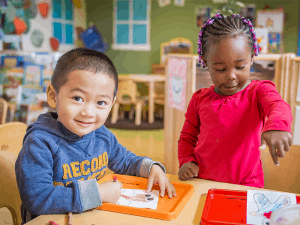 Parents in Chicago often enroll their children ages 3-5 in community-based organizations because they love and trust their local early learning program and because the program provides more convenient hours and comprehensive, year-long services for families. With support from Crown Family Philanthropies, Start Early launched a new initiative this summer in partnership with Chicago Public Schools (CPS) and Chicago’s six federally funded Head Start grant recipients to make special education services more accessible for the city’s children ages 3-5 who are enrolled in community-based Head Start programs.
Parents in Chicago often enroll their children ages 3-5 in community-based organizations because they love and trust their local early learning program and because the program provides more convenient hours and comprehensive, year-long services for families. With support from Crown Family Philanthropies, Start Early launched a new initiative this summer in partnership with Chicago Public Schools (CPS) and Chicago’s six federally funded Head Start grant recipients to make special education services more accessible for the city’s children ages 3-5 who are enrolled in community-based Head Start programs.
Currently in the city of Chicago, special education services are not provided in community-based settings where many children are enrolled. Instead, children attend both their community-based program and a school-based program, which involves bus rides and multiple transitions between classrooms in one day. Some parents who rely on community-based settings for early learning may forgo these services that their child needs to avoid distress and challenging behaviors that can follow the multiple transitions.
Even when children receive their special education services in a CPS classroom, those supports do not follow them to their community-based setting. This leaves children unable to fully access and participate in the classroom and it leaves teachers without the support they need to ensure the best quality educational experience. As a result, children may experience barriers to healthy development. The current system also poses long-term challenges for CPS as they work to ensure equitable access to special education and kindergarten readiness for all students.
Support Our Work
Together, when we start early, we can close the opportunity gap and ensure every child has a chance to reach their full potential.
The goal of this project is to ensure access to inclusive special education services for all children with disabilities enrolled in community-based early childhood programs in Chicago. To this end, we are working in partnership with families and educators to develop, implement, assess, and institutionalize feasible strategies and approaches for delivering special education services to children with Individualized Education Plans (IEPs) onsite in the Head Start programs in which they are enrolled.
Start Early staff are nationally recognized leaders in special education for young children. Learn more about Start Early’s recommendations for strengthening early childhood inclusion for young children with disabilities, and contact us to learn how you can support high-quality, accessible education for all young children.
The Crown family has worked for decades alongside Start Early to increase access to equitable, high-quality early education and care for all children and families in Chicago, including recent support for the launch of Every Child Ready Chicago, a public-private partnership to support access to high-quality early childhood education in the city.
Start Early remains grateful to Crown Family Philanthropies as we champion early learning and care and close the opportunity gap for our youngest learners.

